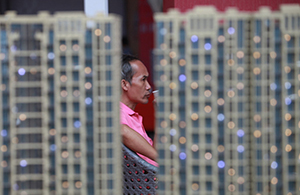Public opinions cannot be ducked
(chinadaily.com.cn) Updated: 2012-11-27 22:27The controversial decision to name seven planned subway stations of Line 2 after a popular duck-snack brand has been canceled, with 27 million yuan ($4.34 million) involved. Naming of subway stations or canceling the decision should follow the same procedure because subways are a city's public facilities, says an article in Beijing Times. Excerpts:
The sale of naming rights is between companies, and it may be hard for the public to see the convenience from infrastructure construction, even if it is paid for by Wuhan Metro Group. Besides, commercial names over stations would do harm to a city's economic income in the long run.
The validity period of Wuhan metro's naming rights means these subway stations are likely to be renamed after other companies after six years. It would not only cause inconvenience to passengers, but also run counter to relevant regulations that advocate uniform place names.
Though many applaud the cancellation, there are still some problems in the whole process. For example, the deal was made the moment the auction of the naming right was done last December. There is the question of whether it is legal to unilaterally cancel the transaction, and whether damages should be paid. The metro operator and decision-maker for the cancellation are supposed to pay more attention to procedures.
It is indisputable that from the perspective of practical operations and public interests, many Chinese metro companies have sought new profits through auctioning off naming rights of subway stations, given the huge funding pressure for construction and the earnings over long periods that such deals offer. But decision-makers should also always keep in mind public opinion and proper procedure.
Translated by Xiao Lixin from the Beijing Times












